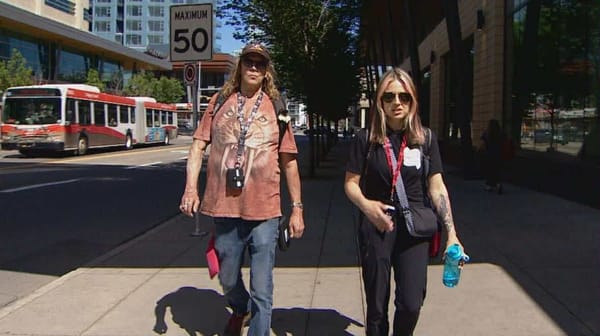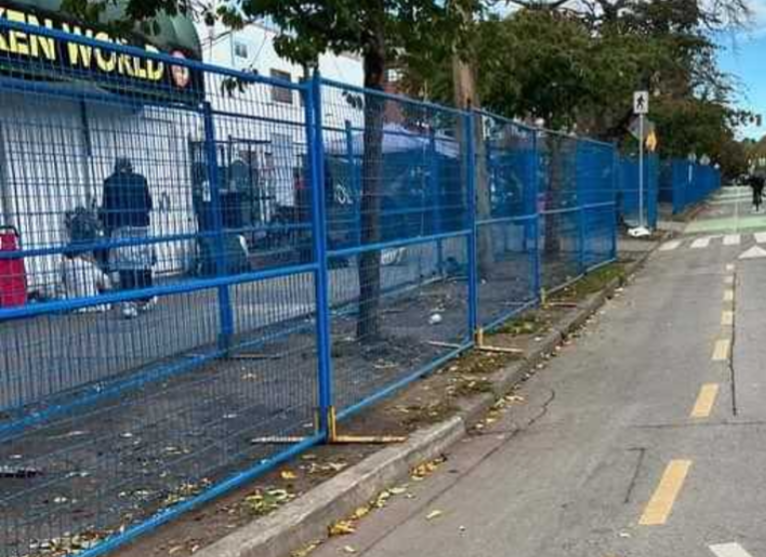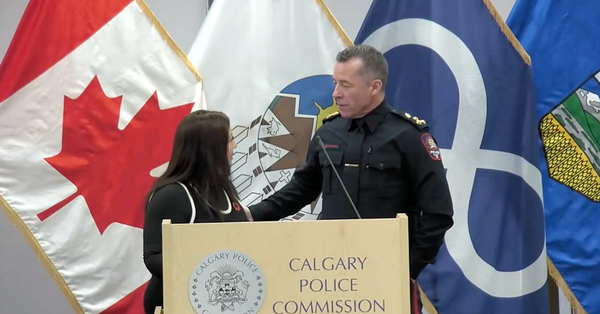Drug Data Decoded Year 1 in Review
Drug Data Decoded launched in January 2023. Over 64 stories, it has blown the cover of key structures holding the drug poisoning crisis in place. Let's review and in 2024, let's keep going.

Drug Data Decoded has published 64 stories since launching January 19, 2023. We’ve linked settler colonialism in Palestine with the drug poisoning crisis in urban Canadian settings and we’ve linked the financial motivations of police forces, addiction physicians and right-wing politicians with their advocacy on drug policy. We’ve announced protests, launched open letters and worked to integrate analysis of systems upholding racist class structures into all of this.
Thanks for joining me and everyone else publishing on Drug Data Decoded—it’s been a community effort and has emerged as a central hub for drug policy. As Crackdown’s Garth Mullins pointed out, drug policy advocates are forced to build our own media—and as mainstream media continues to fail, we need ways to get our message out.
So please share Drug Data Decoded with friends. If you want to see even more in 2024, consider joining the folks who currently support it with a few bucks a month.
In the spirit of Keeping Six, the best of ‘23
Please share and leave comments on your favourites!
6. Alberta drug policy is executing unhoused people
If you surf, you’re 10 times more likely to experience a shark attack than if you don’t.
If you smoke, you're 30 times more likely to die of lung cancer than if you don’t.
If you are unhoused in Calgary, you are 1000 times more likely to die of drug poisoning than if you are housed.
5. The Alberta Drug Model is a Christian institution
Alberta claims to have built an innovative “recovery-oriented system of care,” but an internal AHS document detailing the practices of every private and public facility in the province has something to say about its religious neutrality.
This series locates Alberta’s abstinence-based strategy deep in a settler colonial mindset, with Indigenous men most heavily impacted by its rigid structures.
4. Marshall Smith’s human centipede
How does deregulation play out in Alberta drug policy?
It turns out, unregulated counselling is key to maintaining profitability in our increasingly privatized ‘system of care.’
Marshall Smith, the premier’s chief of staff and the system’s architect, has left fingerprints all over its moves to protect private interests.
3. The Alberta government is privatizing recovery data
The biggest scoop and most-read story by Drug Data Decoded, this details the transfer of knowledge wealth from the public to the private domain—straight into the pocket of Last Door Recovery Society.
The abstinence-based recovery house in BC is closely linked to Alberta’s drug policy architects. Last Door obtained over $1.7 million in sole-source contracts from the Alberta government to build an app that appears to keep critical data for evaluating the government’s system out of the public eye.
2. Meet the physicians stonewalling safe supply
While a small group of physicians have been loud in opposition to prescribed safe supply services, why do they keep their financial interests so quiet?
The most widely shared piece on Drug Data Decoded, this analysis made me a target of National Post Opinion after shaking its flimsy Reagan-era drug war narrative to its corrupt foundation.
1. Clearing the Plains 2.0: Alberta drug policy is Indigenous genocide
In 2021, it was revealed that First Nations people in Alberta are six times more likely to die of drug poisoning than non-First Nations people. The roots of this disastrous situation run deep.
Co-written with Michelle Robinson, Terrill Tailfeathers and Will Cardinal-Mawer, this sweeping piece situates the Alberta government’s drug policy manoeuvring within the context of Canadian settler colonialism.
Hidden track: Did Calgary Police break human rights law?
Drug Data Decoded provides analysis on topics concerning the war on drugs using news sources, publicly available data sets and freedom of information submissions, from which the author draws reasonable opinions. The author is not a journalist.





